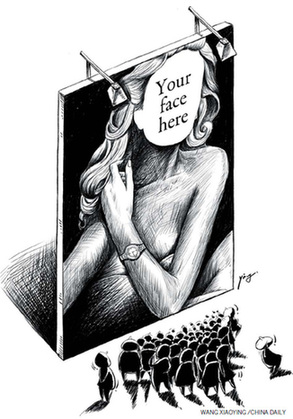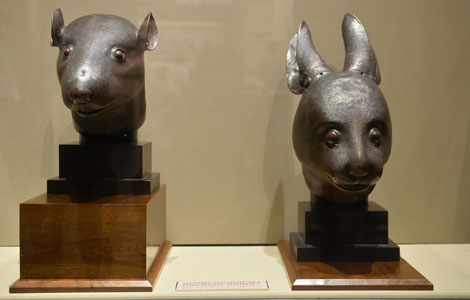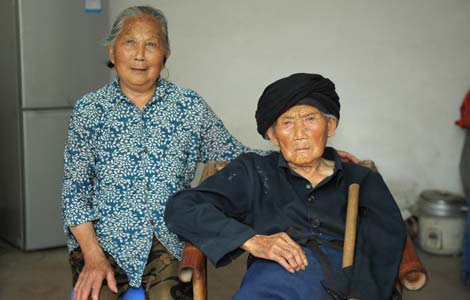

Fraudsters fleece hopefuls seeking fame and fortune. Ming Yeung reports from Hong Kong.
When Chris Chan was stopped in the street by a "talent scout" and asked if she wanted to be a model in commercials, she leapt at the chance.
As a single woman with a large mortgage and two parents to support, the opportunity to make some much-needed extra cash looked too good to be true.
 |
Chan was the victim of a well-worked scam - and one that is potentially being aided by the booming popularity of television talent shows.
Fueled by dreams of fame and fortune, young hopefuls every year are falling prey to fraudsters in Hong Kong who promise modeling or recording jobs, but instead fleece them for large sums of money.
Although official figures show a decline in complaints, they could be presenting a false picture "because many people don't report their losses for fear of appearing stupid", said Chan, who now has a Yahoo blog offering help and advice to other victims.
Statistics from the special administrative region's Consumer Council show that, as of September this year, there were 17 reports of modeling and advertising swindles, far fewer than the 48 in 2009 and 27 in 2008.
Most complaints are against companies recruiting fitting models ("living mannequins" hire by fashion house to test designs) and actors for voice overs.
Police records also suggest an overall decline in companies operating the fraud, which reached a peak in the 1990s. After a series of rigorous crackdowns and extensive publicity campaigns, the situation "has been contained", said a police spokesman, who added that the number of firms receiving complaints had reduced from 30 in 2000 to just four in 2009, a decrease of 87 percent.
However, Chan says her research shows there are roughly 20 active groups running scams citywide.
"They know the tactics to stay afloat," said the accountant. "In my experience, fraudsters operate companies for no more than three years, or until there are enough complaints against it."
The most recent case of a fake modeling agency being punished in Hong Kong was in 2005, when four people in Tsim Sha Tsui were sentenced to four-and-a-half years in prison for conspiracy to defraud.
Criminals who run the scam largely stick with the two most common modi operandi.
Apart from recruiting women as models and promising them jobs after charging for training or professional portraits, fraudsters also pose as trading company representatives looking for fitting models. Victims are usually told they need to wear make-up during photo shoots and are encouraged to attend a nearby beauty parlor, where they are pressured into purchasing over-priced treatment packages.
The latest twist has seen companies offer people help in launching singing careers by recording demos. However, before these "stars are discovered", they must first fork out for a state-of-the-art studio and production technicians.
Noris Tam, casting and booking manager at Grandee Model Management, said fraudsters have ruined the business of scouting for new faces in public.
"People used to have more confidence when you approach them asking if they are interested to be models," said Tam, who added that one-fourth of the clients on her company's books are from public scouting.
Mean streets

Chris Chan said her life was changed forever the day she was approached in Tsim Sha Tsui by a woman who "wanted to cast me in advertisements". It was the summer of 2003.
Although skeptical at first, Chan gradually gained confidence after the scout, who said she was from a "production house" called Space 2, assured her company had been set up by a reputable celebrity.
"The salary I was earning from my full-time job was barely enough to ends meet," she said. "I just wanted a part-time job to make some spare cash for emergencies. The woman told me I would not have to pay for anything."
She handed over her cell phone number to the scout and left. Within days, she received a call asking her to an office for a casting session.
The first step was filling in a questionnaire about her financial background and then a chat with a manager.
"During that meeting, I was shown a portfolio of all the advertisements and projects the company had done for major newspapers and magazines. It all looked very convincing. It looked real," recalled Chan.
A common skill of such fraudsters is flattery, with potential victims made to feel like they are the agency's most beautiful or talented clients. In Chan's case, the buzzword was "money".
"They told me how easy it would be to make money. That I could earn HK$200 an hour for one advertisement that takes five to six hours to finish, even if I was a nobody," said Chan. "If I became famous one day, I could earn up to HK$800 an hour."
After the initial interview, Chan was escorted to an empty room to deliver a self-introduction to a digital camera.
Over the following days, she said her cell phone was "bombarded with calls" from workers at the agency informing her she was a potential candidate for several advertisement campaigns. She finally gave in and agreed to another casting session.
This time she was greeted by another male manager, who after about an hour started to talk about a HK$30,000 package that included a set of comp cards (marketing tools for actors and models) and consultant fees for styling and hair design.
"That was when I knew it was a trap," said Chan. "I insisted on leaving and the manager quickly dropped his pleasant act. He told me that there is no such thing as a free lunch and that I could not leave that easily.
"He shouted that, no matter what, I still had to pay."
At this point, Chan began to worry about her safety and decided to hand over the money. Today, she feels she was not cheated, but robbed.
"It's absolutely outrageous for any company to require you to pay before you get the job," said Tam at Grandee Model Management. "There's no way a proper modeling company charges you up front."
She added that, even during projects, modeling agencies pay nothing for stylists or make-up artists because they usually work for free on the condition their names appear on the advertisement.
"I was so ashamed, I couldn't tell my parents. I even thought about killing myself," said Chan. "Neither the police nor the Consumer Council accepted my report against the company. They both suggested that, as I didn't have a gun pointed at my head, I was under no obligation to pay."
Staying alert
A duty officer with the police force's public relations office refused to comment on Chan's case when contacted by China Daily, saying only that all complaints are assessed on their own merits.
"We will conduct investigations when necessary to interdict this type of fraud and instigate prosecutions when there is sufficient evidence," he said.
During a 2008 interview with Radio Television Hong Kong, Carmen Man, a senior police inspector, said: "We focus on cases involving criminality. If those cases involve only questionable sales techniques, (complainants need to go) to the Consumer Council, that we work with closely."
However, after being deceived into parting with the cash, victims find it almost impossible to get it back from talent companies, explained Christina Wong, a spokesman for the Consumer Council.
Chan was lucky. By getting in touch with 20 other victims through the Internet, and enlisting the help of Lee Cheuk-yan, a legislative councilor and general secretary of the Hong Kong Confederation of Trade Unions, she received two-thirds of her money back from Space 2 (it is believed the company is now running under a new name).
Shortly after being scammed, Chan established a Yahoo blog to prevent others from making the same mistake. So far, the site has attracted almost 100,000 visitors, and Chan said she receives e-mails from victims every two or three days.
Although there is a widely held belief that most modeling company frauds happen in the summer, the police PR officer said records do not indicate any peak time, and urged young people to be vigilant at all times. "The fraudsters never take a break," agreed Chan.
Officials with both the police and Consumer Council hold regular meetings to exchange intelligence and explore better ways to target unscrupulous modeling agencies.
"In the meantime, we advise people to be cautious and not to go alone to an agency's office," said the police spokesman. "More importantly, never pay up front for anything they offer."







